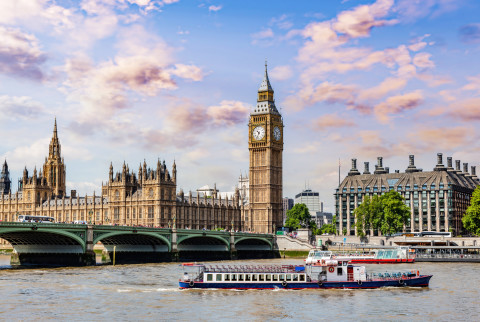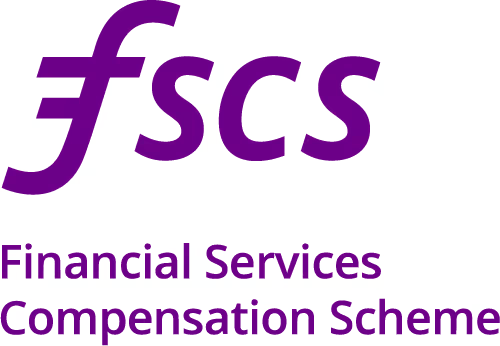
After months of damaging speculation and u-turns, Chancellor Rachel Reeves has finally delivered her Budget 2025 smorgasbord. PensionBee, a leader in the consumer retirement market, has warned that today’s Budget punishes hard-working savers who diligently put money aside for their future.
Rather than rewarding financial resilience or strengthening trust in the pensions system, the measures risk undermining saving and leaving millions worse off in retirement - the exact opposite of what’s needed to secure better long-term outcomes for UK workers.
PensionBee’s experts comment on what today’s announcements mean for pensions, ISAs, investments and property:
Capping of Salary Sacrifice on Pensions
Lisa Picardo, Chief Business Officer UK at PensionBee comments: “Capping National Insurance-efficient pension contributions at £2,000 by April 2029 to raise £4.7 billion would significantly weaken one of the most effective and accessible mechanisms workers have to build long-term savings through the workplace.
Salary Sacrifice has long enabled employees to contribute more to their pensions in a tax-efficient way.
While a cap is preferable to scrapping the system entirely, it will still sharply limit how much many people can realistically afford to put aside for their future.
Such a cap would also reduce employers’ ability to support workplace saving. Many businesses use Salary Sacrifice to enhance contributions and manage costs sustainably.
Restricting this allowance risks discouraging employers from offering or promoting these schemes, and introduces unnecessary complexity at a time when simplicity and trust in the pension system are crucial.
More broadly, capping Salary Sacrifice sends the wrong message at a time when the UK needs to encourage greater long-term saving, not constrain it.
Reforms should prioritise strengthening retirement outcomes and build on what we have, not tear them down.
Reducing one of the clearest incentives to save represents a step backwards for the country’s future financial wellbeing.
In the meantime, employees that are enrolled in a scheme that facilitates Salary Sacrifice should look to take advantage of the opportunity to maximise pension contributions before the April 2029 deadline.”
Employers switching employees to Relief at Source workplace schemes
Lisa Picardo, Chief Business Officer UK at PensionBee comments: “The assumption is that many employees will switch to making pension contributions to Relief at Source (RAS) schemes.
This means it’s more incumbent on individual savers to claim any incremental tax relief above the basic rate through their next year’s self-assessment, increasing complexity, delaying the benefit of tax-relief into pension pots, and risking money being left on the table altogether if people fail to complete their paperwork.
Our research estimates that this amounts to over a billion pounds over the past few years.
Once employees have maximised employer contributions available through their workplace schemes, they may look to make contributions into their other personal pension saving accounts to maximise the use of available tax relief.”
Cash ISA changes
Maike Currie, VP Personal Finance at PensionBee, comments: “Despite repeated warnings, the Chancellor has proceeded with plans to tinker with the cash ISA, adding needless complexity to a product that is well-understood and works.
The annual allowance will drop from £20k to £12k for cash ISAs, stating that the £8k must be invested in stocks and shares, while over-65s keep the full cash ISA allowance.
This over-engineering may keep older voters happy but it won’t fix Britain’s investment problem. It risks penalising those who most need help building long-term wealth like women, who hold more in cash ISAs overall than their male counterparts.
There are smarter and more effective ways to encourage saving and investing than complicating a product people already understand and value.”
Increasing tax on dividends and savings income
Maike Currie, VP Personal Finance at PensionBee, comments: “Tax rates on dividends, property and savings income will increase by two percentage points, set to raise £2.1 billion for the government’s coffers.
For anyone serious about protecting their wealth, saving within tax efficient wrappers like ISAs and pensions is no longer optional - it’s essential.”
Stamp duty cut on IPOs and new listings
Maike Currie, VP Personal Finance at PensionBee, comments: “Cutting stamp duty on new listings and IPOs for the next three years is a welcome step, but doesn’t go far enough.
The UK remains one of the few major markets that taxes share purchases, discouraging retail investing. The real risk is idle capital - cash sitting on the sidelines earns nothing and contributes nothing to national growth.
Retail investors who understand the market, engage with UK equities and participate in IPOs can dramatically build wealth while supporting the UK economy.
To unlock this potential, we need financial literacy, simplified access to public markets, a culture that encourages participation and the abolishment of stamp duty on UK shares.”
An annual tax on high value properties
Maike Currie, VP Personal Finance at PensionBee, commented: “With so much of the UK’s wealth tied up in property, this is a timely reminder that the mantra ‘my property is my pension’ is fraught with risk.
The introduction of an annual surcharge of £2,500 on properties valued at over £2 million and £7,500 for those over £5 million, could significantly impact the higher-end of the housing market.
These changes could impact housing market activity and feed through to prices. Falling house prices will test the resilience of the Chancellor’s tenure more than any single policy announcement.”
Freezing of Income Tax thresholds
Becky O’Connor, Director of Public Affairs at PensionBee comments: “Freezing Income Tax thresholds for the next three years further amounts to a stealth tax on workers at a time when household budgets are already under strain.
As wage growth pushes more people into higher tax bands, fiscal drag increases the tax burden without any boost to take-home pay, breaching the Government’s own promises and leaving families worse off.
This hidden squeeze undermines people’s ability to save and plan for the future. When everyday costs rise faster than earnings, pensions are often the first thing to be sacrificed, weakening long-term financial resilience and storing up problems for future retirees.
The Government should be backing a tax system that rewards work, supports saving and strengthens financial security - not stealthily eroding it.”











